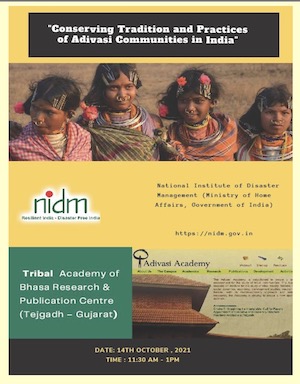Journal » Vol. 43, Issue No. 39, 27 Sep, 2008 » The Mapping of the Adivasi Social: Colonial Anthropology and Adivasis | Special Articles | Bhangya Bhukya
The construction of textual knowledge about Indian communities in the colonial milieu resulted in an extensive literature on almost all communities that was not only used as a source of legal and general administration but also to establish colonial domination. In this process the adivasis of India were constructed apposite to civilised society, therefore a distinct society. Unfortunately, post-colonial scholarship did not decolonise this colonial construction of adivasi society […]
Between Tradition and Modernity
Vol. 48, Issue No. 48, 30 Nov, 2013 | Special Articles | Bhangya Bhukya
The British colonial state in India ensured that the princely states were picturised as backward enclaves that kept alive an older feudal polity characterised by autocracy and underdevelopment, while British India moved towards modernity and capitalist development. However, the reality was that while the princes appeared superficially to enshrine an exotic Oriental past in their courtly and private life, the general development was carried out on the line of the colonial model. The ideological boundaries between the princely states and British territories were fluid and there was visible cross-pollination between the sociocultural and political issues and movements of the two territories. In fact, the colonial state used a number of methods to produce the effect of colonial power in the princely states. The coastal Andhra ruling class has continued a similar strategy after the formation of Andhra Pradesh state in order to subordinate the people of Telangana.
Source: Between Tradition and Modernity | Economic and Political Weekly
Address: http://www.epw.in/journal/2013/48/special-articles/between-tradition-and-modernity.html
Date Visited: Tue Nov 01 2016 19:33:58 GMT+0100 (CET)

Ādivāsi [ādibāsi] may be used in accordance with local conventions; and increasingly so for official purposes (e.g. in “Conserving Tradition and Practices of Adivasi Communities in India” published on NIDM.gov.in); Dr. Ivy Hansdak clarifies:
“Adivasi – which is derived from Sanskrit – is applied to the dark-skinned or Austro-Asiatic indigenous groups of India (usually those from Eastern India). It is a commonly-used term in Jharkhand, Bihar, West Bengal and Odisha. It is also used by the local Mongoloid tribes of North Eastern India for the migrant workers who were brought in as indentured labourers to work in tea plantations during the colonial period. ‘Tribal’ is a very broad term in the English language and includes all the different indigenous groups of India. The terms ‘indigenous’ and ‘aboriginal’ are not used often as the government claims most groups are indigenous in India. ‘Denotified Tribes’ is only used for those nomadic tribes who were notified as ‘criminal tribes’ during the British Raj [colonial rule]; later they were ‘denotified’ but still bear the stigma.” (emails dated 2020 & 2023)

Key Takeaways | Full report >>
Bhasha | Read or download titles for free (eBooks & Magazine) >>
Find publications by reputed authors (add “open access” for freely downloadable content)
PDF-repository: texts quoted & further reference (Google Drive) >>